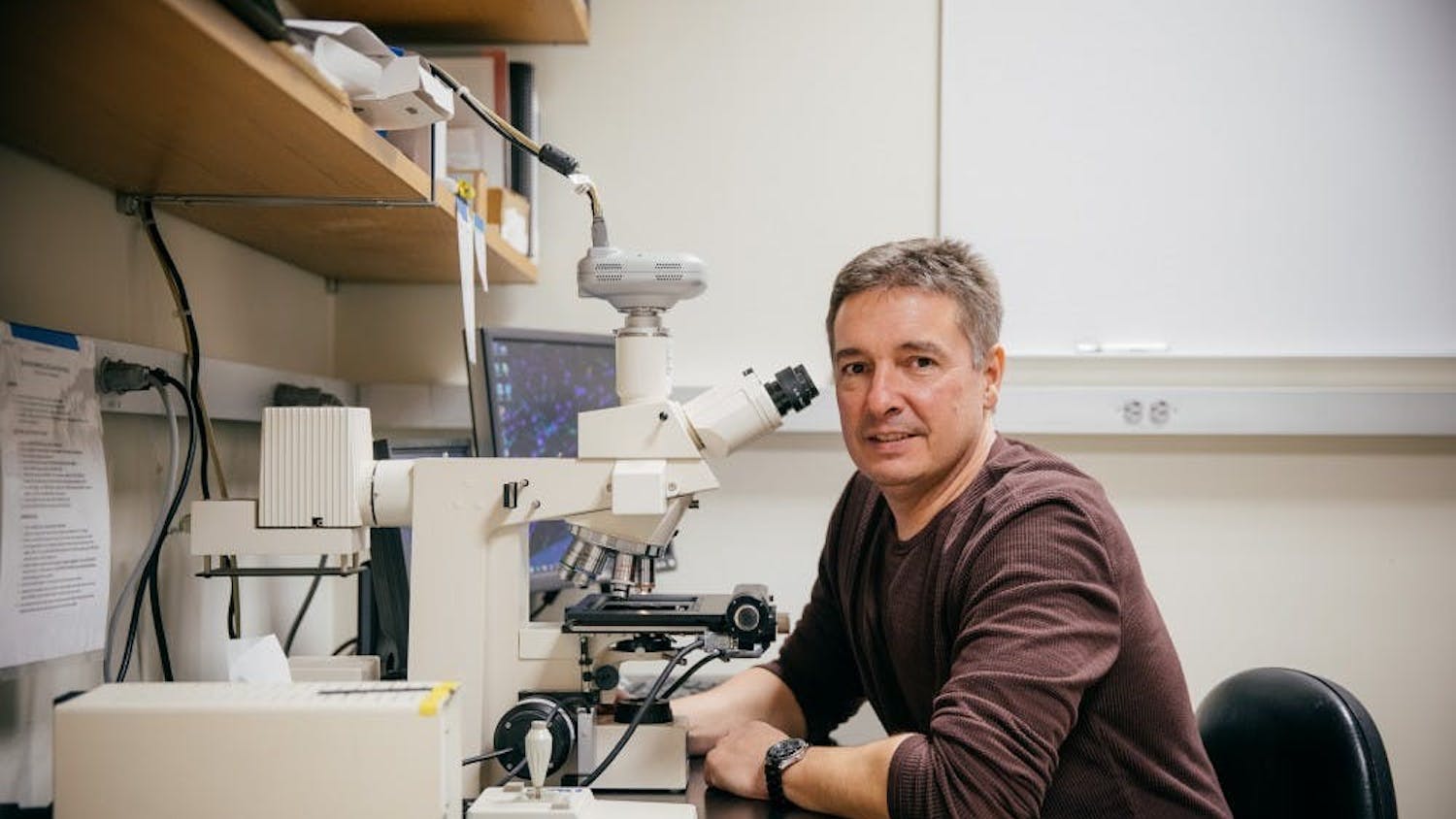The International Symposium on Macrocyclic and Supramolecular Chemistry has awarded Dartmouth chemistry professor Chenfeng Ke the 2020 Cram Lehn Pedersen Prize in Supramolecular Chemistry.
ISMSC secretary and Brigham Young University chemistry professor Roger Harrison said that the annual prize recognizes a young supramolecular chemist — who is no more than 10 years out from receiving a Ph.D. — for important, original and independent research in the area of supramolecular chemistry.
Ke said that he is excited to win such a prestigious honor, calling the prize a huge international recognition of his work.
“I was jumping up and down,” he said.
After receiving his Ph.D. in supramolecular chemistry from Nankai University in Tianjin, China in 2009, Ke received a Newton International Fellowship and studied at the University of Bristol in Bristol, England until 2011. Afterwards, he worked as a postdoctoral fellow at Northwestern University before becoming a professor at the College in 2015.
This is the second time the award has been awarded to a Dartmouth professor; chemistry professor Ivan Aprahamian received the same award in 2016.
Named after a trio of scientists who won the Nobel Prize in Chemistry for their supramolecular research, the Cram Lehn Pedersen Prize in Supramolecular Chemistry has existed for about 10 years, according to Harrison.
Supported by ChemComm, a chemistry journal sponsored by the Royal Society of Chemistry, the prize provides an honorarium of 1,000 British pounds, covers all travel costs to the symposium and related events and enables the recipient to deliver several lectures at conferences. An international committee selects the winner from a group of applicants who either apply themselves or secure peer nominations.
Harrison said that Ke’s research in 3D printing contributed “unique” and “interesting” contributions to the field, building on interactions based on non-covalent bonds.
“The field of supramolecular chemistry is about bringing molecules together that don’t use covalent bonds to hold them together,” Harrison said. “Professor Ke has developed some techniques … using a 3D printer to make these materials.”
What distinguishes Ke from other candidates, Harrison said, is that his peers also find his work groundbreaking. Harrison added that the committee was happy to give the award to Ke as an up-and-coming chemist.
“He’s done some fascinating work, but he’s also done that work and taken it and published it in some reputable journals,” Harrison said.
Ke runs a lab on campus called The Ke Functional Materials Group, which Ke said boasts a couple of 3D printing systems.
“We have four post-doc research fellows, four graduate students and four undergraduate students, so it’s well laid-out in terms of experience and age,” Ke said. “We have a very complementary mentoring team.”
Albert Chen ’22 said he has worked in the lab since spring 2019, after receiving an email from the chemistry department regarding research opportunities. He completed full-time research in the lab over the summer.
Chen said that Ke upholds high standards in his lab and really cares about the quality of the work.
“He wants to make sure we succeed,” Chen said. “He’s also a really fun guy once you get to know him.”
Chen said that he considers Ke to be one of his mentors because of his dedication, assistance and generosity.
“He’s really adaptable in terms of the way he goes about his work,” Chen said. “One time, he went to this conference for chemistry, and one thing they taught him at the conference was how to give an elevator pitch about yourself and the work you do. So when he came back from the conference, he took us to a group dinner and told us all about what he learned at the conference and helped us practice these techniques.”
Virginia Wei ’22 said that she has worked in Ke’s lab since her freshman winter as part of the Women in Science Program. Ke’s lab is split up into two teams, one that focuses on 3D printing and the other on hydrogen-bounded covalent organic frameworks. Wei works on the 3D printing team, mainly focusing on the efficiency of the printers.
“I think he’s a really brilliant man, incredibly hard working, incredibly ambitious and passionate,” Wei said. “I think he is very driven, and I think that reflects in the work that comes out of the lab as well. But he really values students as well. He really tries to get a lot of undergraduates involved in the research.”
Wei said that Ke pushes people to become the best version of themselves, but also remains understanding about his assistants’ circumstances, always encouraging them to do their best both in the lab and in the classroom.
“He does see the potential and capability in people, and I think he really wants them to achieve that potential,” Wei said. “For me, he always has all these new ideas for things to do, and he gives them to me.”
Jayanta Samanta, a research associate post-doctorate at the College, has spent seven months working in the lab and leads the HCOF team. Samanta echoed the sentiments expressed by the undergraduate researchers, saying that Ke is nice, busy and motivated.
Ke said his work is rooted projects that he hopes will have practical applications.



